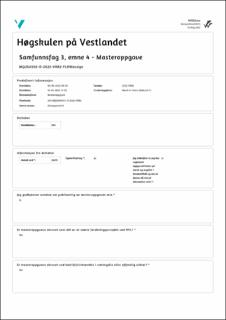| dc.description.abstract | Recently, menstrual health has received increasing attention globally. The assumption that improved menstrual health management (MHM) has a positive impact on girls’ education is becoming widely accepted amongst stakeholders, but being an emerging field of research, the evidence for it is not yet considered to be strong. This thesis explores MHM amongst adolescent schoolgirls in Tanzania. The study was conducted in northern Tanzania, in a predominantly Maasai area, where aspects of the economic and socio-cultural environment might impact girls’ menstrual experiences. In addition, the thesis examines how local nongovernmental organisations and authorities address MHM, and how menstrual health interventions may influence girls’ empowerment and their ability to realise their capabilites. Through a mixed methods qualitative approach, this thesis is aimed at producing a phenomenological understanding of the essence of the menstrual experience for a group of schoolgirls. Qualitative data was collected through a two-month field work. In total, I spoke to twenty-four participants through focus groups discussions and semi-structured individual interviews, in addition to countless field conversations.
Different theoretical frameworks were used to elucidate the intersectionality of girls’ menstruation and wider gender inequalities in education. Gender theory was used to discuss how bodily functions impact lived experiences. Anthropological perspectives on taboo, pollution and confinement were used to discuss menstrual conduct. Naila Kabeer’s framework for empowerment was chosen to analyse power(lessness), and capabilites approach was deemed appropriate to identify the freedom and lack of freedom of menstruating girls.
Some consistent themes emerged from the girls’ menstrual narratives. The findings suggests that insufficient sanitary products and knowledge, as well as expectations of gendered behaviour, influenced girls’ menstrual experiences. Menstrual taboos caused shame and fear and lead some girls to be aware and adaptive to their surroundings during menstruation. Moreover, menstruation impacted girls’ performance and well-being in school, which in itself proves the importance of including MHM in further research and interventions. | en_US |

